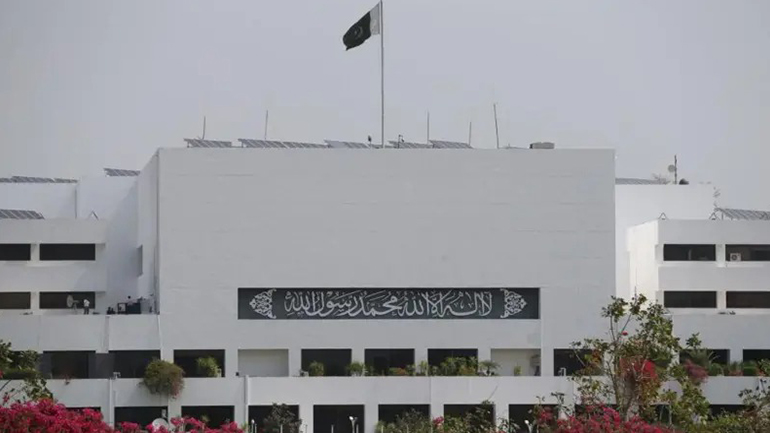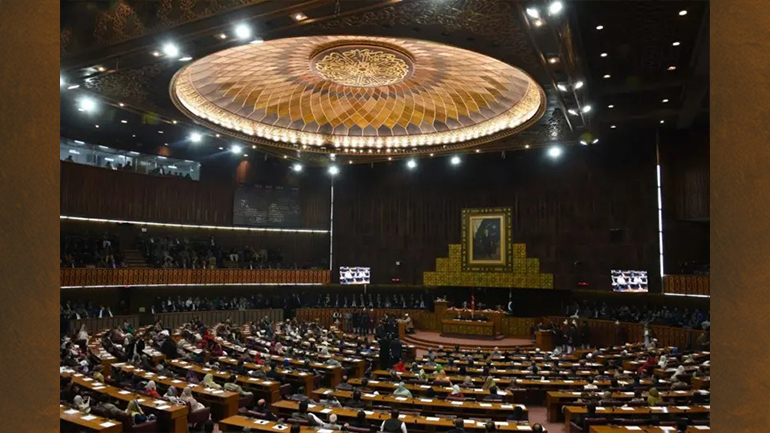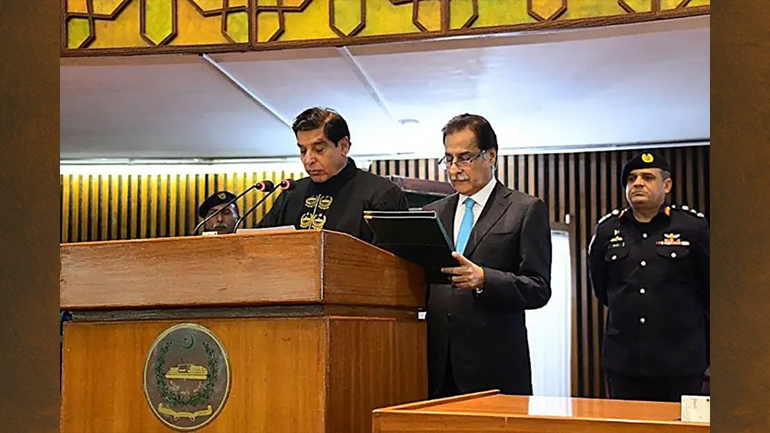

In the general elections held last year, Pakistan Tehreek-e-Insaf (PTI) entered the political arena without its iconic “bat” symbol—yet it still managed to win a significant number of seats. However, what remained unresolved without that bat was the issue of securing reserved seats. Now, not just PTI, but other political parties have also set their sights on these reserved seats. The matter went through the Election Commission, the Peshawar High Court, the Supreme Court, and finally, an interpretation by a constitutional bench. At times, rulings came against PTI, and at other times, in favor of Imran Khan. But the outcome last week was that 77 reserved seats in the National Assembly and three provincial assemblies would not go to PTI, but instead to other parties. This deprived PTI of reserved seats and strengthened the ruling coalition’s position. The 12-member Supreme Court bench, headed by Justice Aminuddin, in a 7-5 majority decision, accepted the review petitions and overturned the previous July 12, 2024, ruling, which had stated that the reserved seats resulting from the February 2024 elections should be awarded to PTI. In their brief judgment, the bench stated that the reserved seats cannot be allotted to Pakistan Tehreek-e-Insaf or the Sunni Ittehad Council.

As a result of this decision, 22 reserved seats in the National Assembly and 55 in the provincial assemblies—excluding Balochistan—have now been awarded to the ruling coalition. Out of the 22 National Assembly seats, 14 have gone to the ruling party, Pakistan Muslim League-Nawaz (PML-N), raising its total from 110 to 124 seats in the lower house of parliament. The Pakistan Peoples Party (PPP) has received five additional seats, increasing its total from 70 to 75, while Maulana Fazlur Rehman's JUI-F has gone from eight to 11 seats. A two-thirds majority requires 224 seats, and with this decision, the ruling coalition now reaches 214 seats, bringing it close to that threshold. In the Khyber Pakhtunkhwa Assembly, 21 women’s seats and 4 for minorities have been restored. As a result, JUI-F will get 10, PML-N 7, PPP 7, and ANP 1. In the Punjab Assembly, 24 reserved seats for women and three for minorities have been reinstated. PML-N will receive 23, PPP two, and Pakistan Muslim League (PML) one. In the Sindh Assembly, two women’s seats and one for minorities have been restored. PPP will get two, and MQM will receive one. The Supreme Court’s decision came after review petitions were filed against granting reserved seats to Pakistan Tehreek-e-Insaf (PTI). PTI-backed independent candidates had requested reserved seats through the Sunni Ittehad Council, but the Election Commission rejected the request, saying the Council is not a parliamentary party and therefore not entitled to reserved seats. The Peshawar High Court upheld this decision, but on July 12, 2024, a 13-member Supreme Court bench ruled (8 in favor) that PTI should be given reserved seats. In response, PML-N, PPP, and the Election Commission filed review petitions. Of the 336 total National Assembly seats, 266 are filled through direct elections, while 60 are reserved for women and 10 for non-Muslim minorities. In provinces:
Punjab Assembly has 371 seats (297 directly elected),
Sindh Assembly has 168 seats (130 general),
Khyber Pakhtunkhwa Assembly has 145 seats (115 general),
Balochistan Assembly has 65 seats (51 general).
Reserved seats include:
Punjab: 66 for women, 8 for non-Muslims
Sindh: 29 for women, 9 for non-Muslims
KP: 26 for women, 4 for non-Muslims
Balochistan: 11 for women, 3 for non-Muslims

Under the Elections Act, each political party submits a priority list of candidates for reserved seats to the Election Commission of Pakistan (ECP), and these candidates must also submit nomination papers. Based on election results and proportional representation, the ECP issues notifications for successful women and minority candidates. However, the distribution of reserved women’s seats is tied to provincial quotas:
Only 4 women can be selected from Balochistan,
10 from KP,
32 from Punjab, and
14 from Sindh for the National Assembly.
Now that the ruling coalition has secured a two-thirds majority in the National Assembly, the question arises: what decisions can it now make that were previously out of reach? When this question was posed to government leaders and coalition partners, most declined to comment for the time being. Election affairs expert Ahmed Bilal Mehboob, following the reserved seats verdict, the government has gained several advantages, while the importance of parties like PTI, PPP, and JUI-F has been somewhat reduced. According to him, “With the PML-N-led coalition gaining more seats and reaching a two-thirds majority in the National Assembly, the PML-N may now also achieve a simple majority on its own.” He added that for constitutional amendments, the government may no longer need support from JUI-F. Mehboob also stated that once the remaining 12 Senate seats from Khyber Pakhtunkhwa are filled, the ruling coalition may gain a two-thirds majority in the Senate as well, making constitutional amendments much easier. He further noted that the PML-N-led coalition could now potentially form a stable government even without the PPP. “PPP, which was known for making extensive demands, may now have less leverage,” he remarked. He also suggested that in Khyber Pakhtunkhwa, the difference between the ruling party and the opposition will shrink, potentially increasing the chances of a no-confidence motion.

Senior journalist and analyst Fayyaz Raja agreed, saying this decision has made the legislation process easier for the government, and we may soon see the 27th constitutional amendment. In his opinion, this amendment may increase the number of National Assembly seats for Balochistan and interior Sindh, based on the latest census, which showed a relative population increase in those regions compared to other provinces. Raja noted that currently, elections are held for 266 seats, but with more seats likely to be allocated to Balochistan, that number could change. He also predicted that the government and its allies are likely to gain seats in the Senate elections in KP. Musarrat Qadeem, an electoral affairs expert and former chairperson of the Free and Fair Election Network (FAFEN), said the decision is full of ambiguities. In her view, “a trend of compromise justice and compromise politics” is becoming more apparent. She called the ruling “a major blow to the democratic process”, saying it would likely weaken public trust in institutions, as people are becoming increasingly disillusioned by contradictory decisions. “Voters will be disappointed,” she added, “because they’ll feel they voted for one party, but the seat ended up going to another.” Discussing the implications, she warned, “When a government gains such power, it often passes laws that previously seemed unimaginable. The kind of legislation passed recently raises many questions.”
Powered by Froala Editor